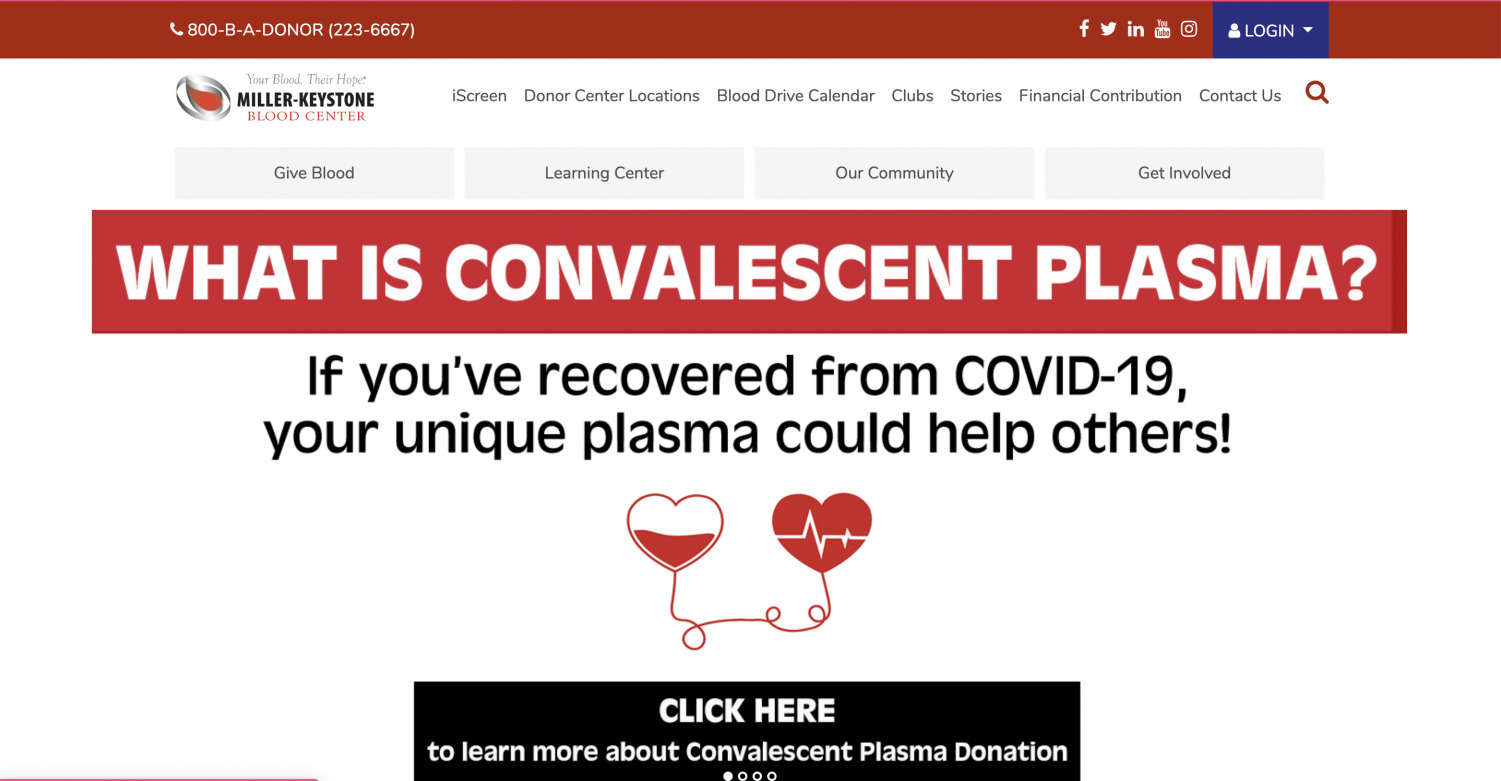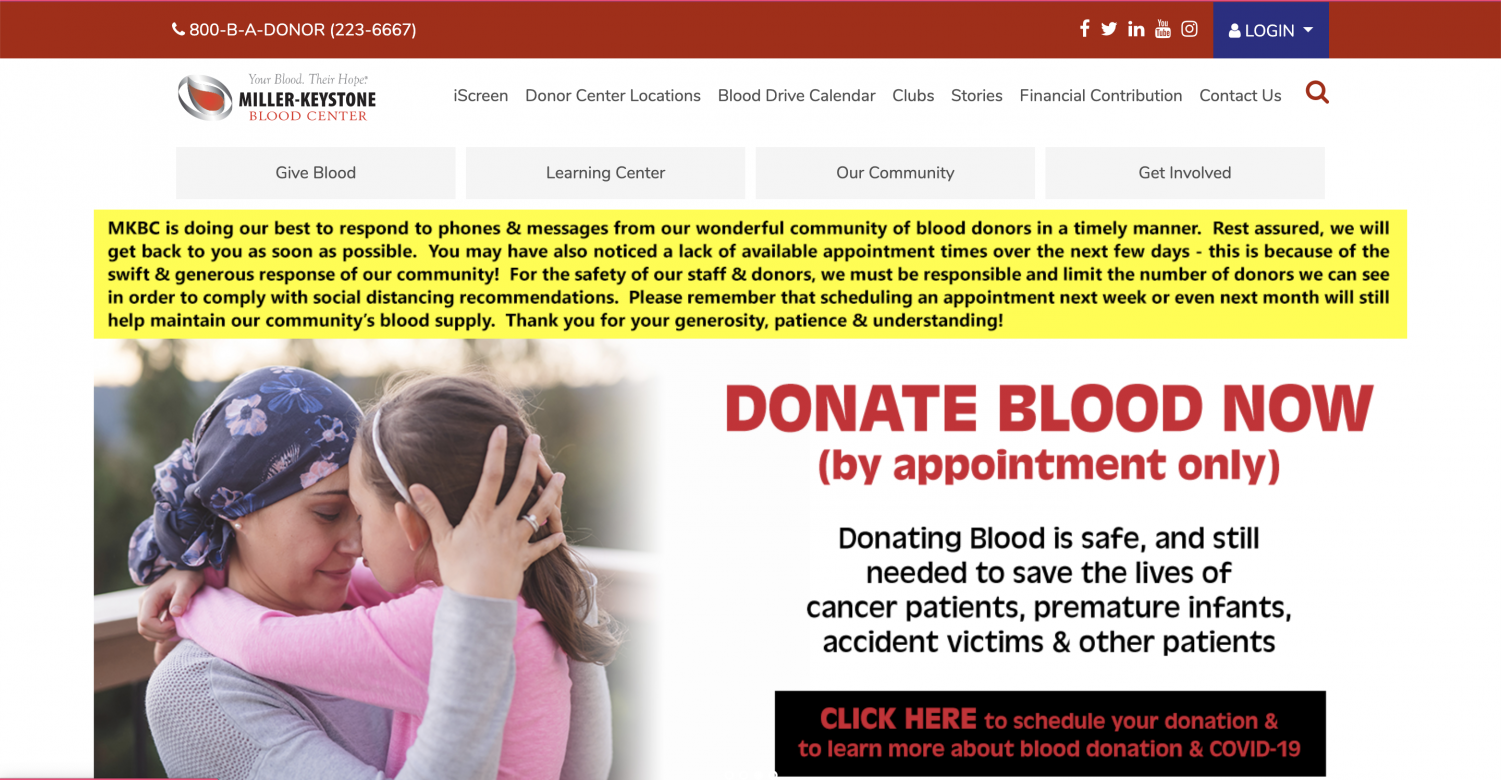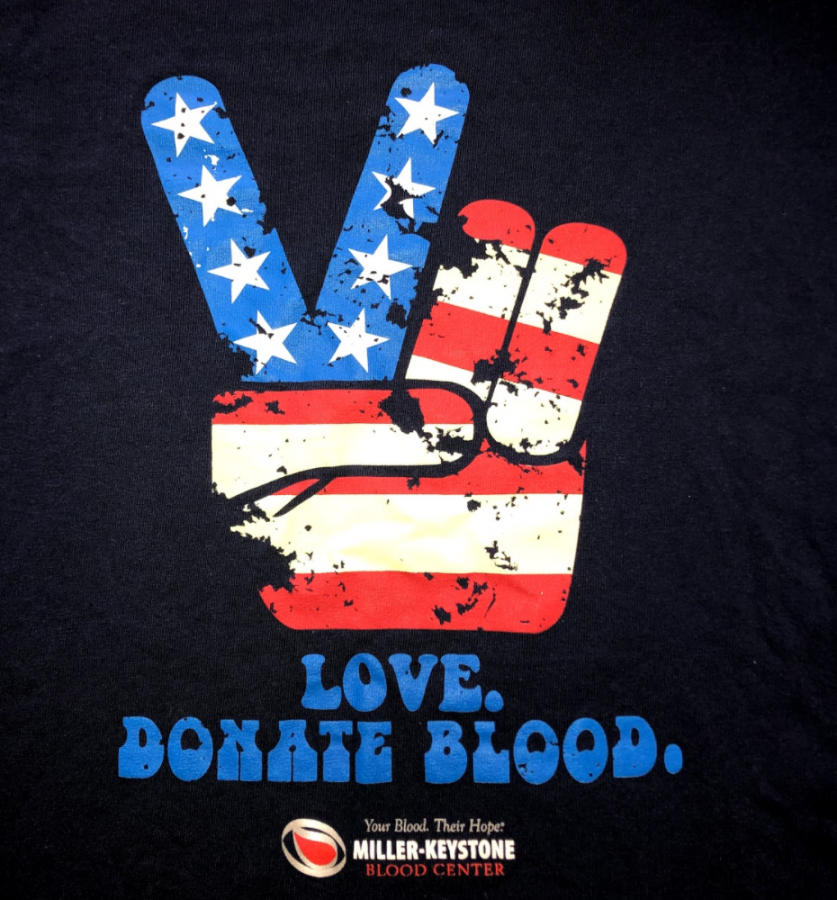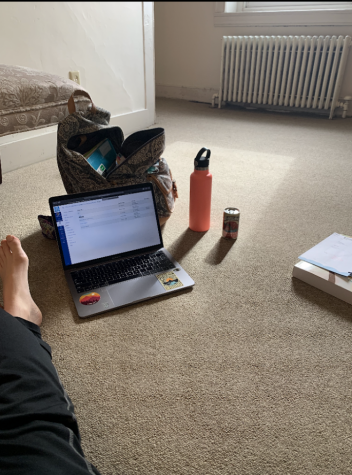Donating Blood During Quarantine: A Way to Save Lives
“Is it even safe to donate blood right now?” The answer to that question is simply, yes, it is perfectly safe to go to donation centers.
As an active blood donor, I’ve also had many questions about donating blood and plasma during a pandemic. I had been receiving emails about the centers needing blood donations, so I decided to reach out to Marie Clemens, the corporate director of communications at Miller-Keystone Blood Center of the Lehigh Valley, for some answers.
The main thing that everyone is questioning is how the COVID-19 pandemic has affected the donation process.
“The donation process itself for donating blood or plasma has not changed,” Clemens said. “However, due to social distancing recommendations, other practices related to donating blood have changed.”
Miller-Keystone has been complying with the social distancing recommendations given by healthcare providers.

As a consequence, the Center has implemented two major changes.
First, instead of accepting walk-in donations, Miller-Keystone is only accepting donations by appointments. Also, it is only allowing donations at its permanent door-center locations in Bethlehem, Easton, Allentown, Pittson, Reading, and Trenton.
These centers are not considered “mass gathering” areas, but they are still abiding by the distancing regulations and requiring that all donors wear a mask during their donations.
“The risk of exposure at a donor center is exceedingly low,” Clemens reassured me. “Going to a blood center is safe.”
All Blood Center equipment is decontaminated between uses, and everything that touches blood — such as blood bag, needles, and test tubes — is sterile and disposable.
Also, all signature pads, tables and tablets are sanitized between use, and the staff wear personal protective equipment, such as gloves and face shields, according to regulatory requirements.
Donors are still required to stay a few minutes after they complete their donation, so staff monitor can them and see if they are feeling well, per FDA regulations. However, donors will no longer be permitted to gather at the Center’s canteens for refreshments; staff members will bring refreshments to donors instead.
Clemens explained that even though there is no blood shortage as of now, Miller-Keystone is asking donors to schedule donations within the next three weeks. To keep up with their normal amount of units, they need about 450 donors a day.

The supply will be used for transfusions in regional hospitals, in addition to everyday recovery transfusions for cancer patients, trauma victims, and premature infants, just to name a few.
No specific blood type is needed, but the Center is always looking for “Universal Donors,” that is those with O-negative blood. Also welcome are donors with O-positive, A-negative, and B-negative blood types, as blood banks typically run low on them.
When asked about the importance of donating plasma at this time, especially given that donors may have had the virus, Clemens explained that when a person becomes ill with the virus, they can begin to develop antibodies needed to fend it off.
Patients that quickly recover from COVID-19 are able to donate their plasma after at least 14 days of showing no symptoms. This is important, because collecting these antibodies and giving them to those who are still ill can help infected people recover faster. Convalescent plasma treatment, however, is still in the beginning stages and is considered experimental. Doctors are hoping that this treatment can help save lives later down the road.
If you’re considering donating blood or plasma, definitely do it.
It is completely safe to do and is a good way to give back to your community. Make sure you are healthy and safe before scheduling an appointment to donate at participating centers. Your donation of just one pint of blood can save up to three lives; if you’ve had COVID-19, your donation of plasma can potentially save millions more.
“The need for blood never ends,” said Clemens.












